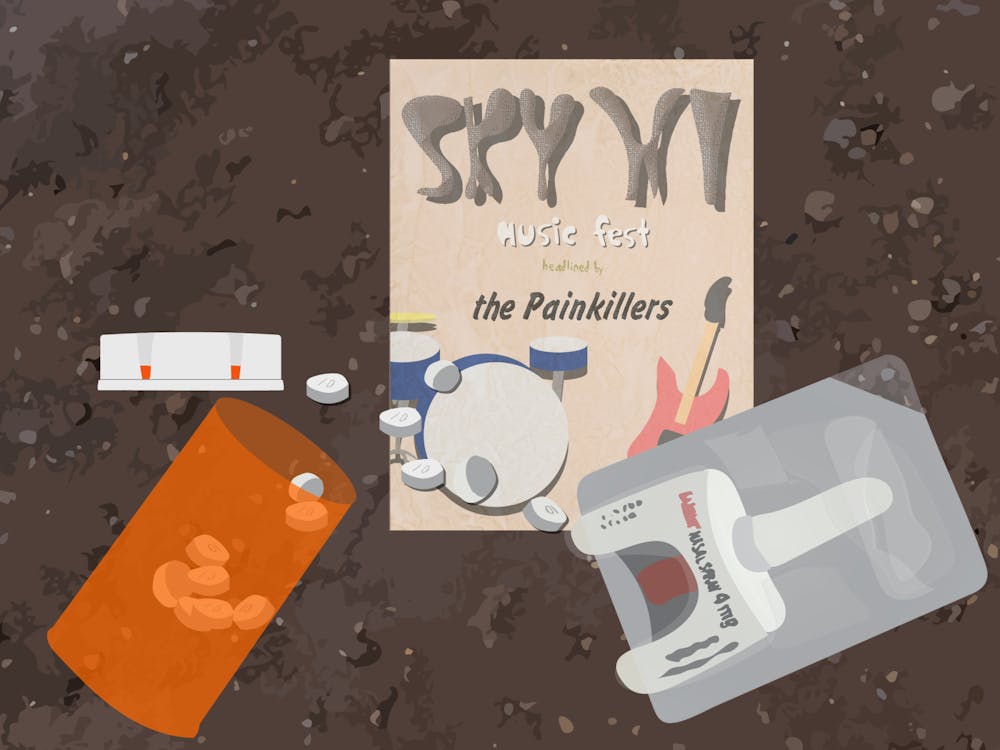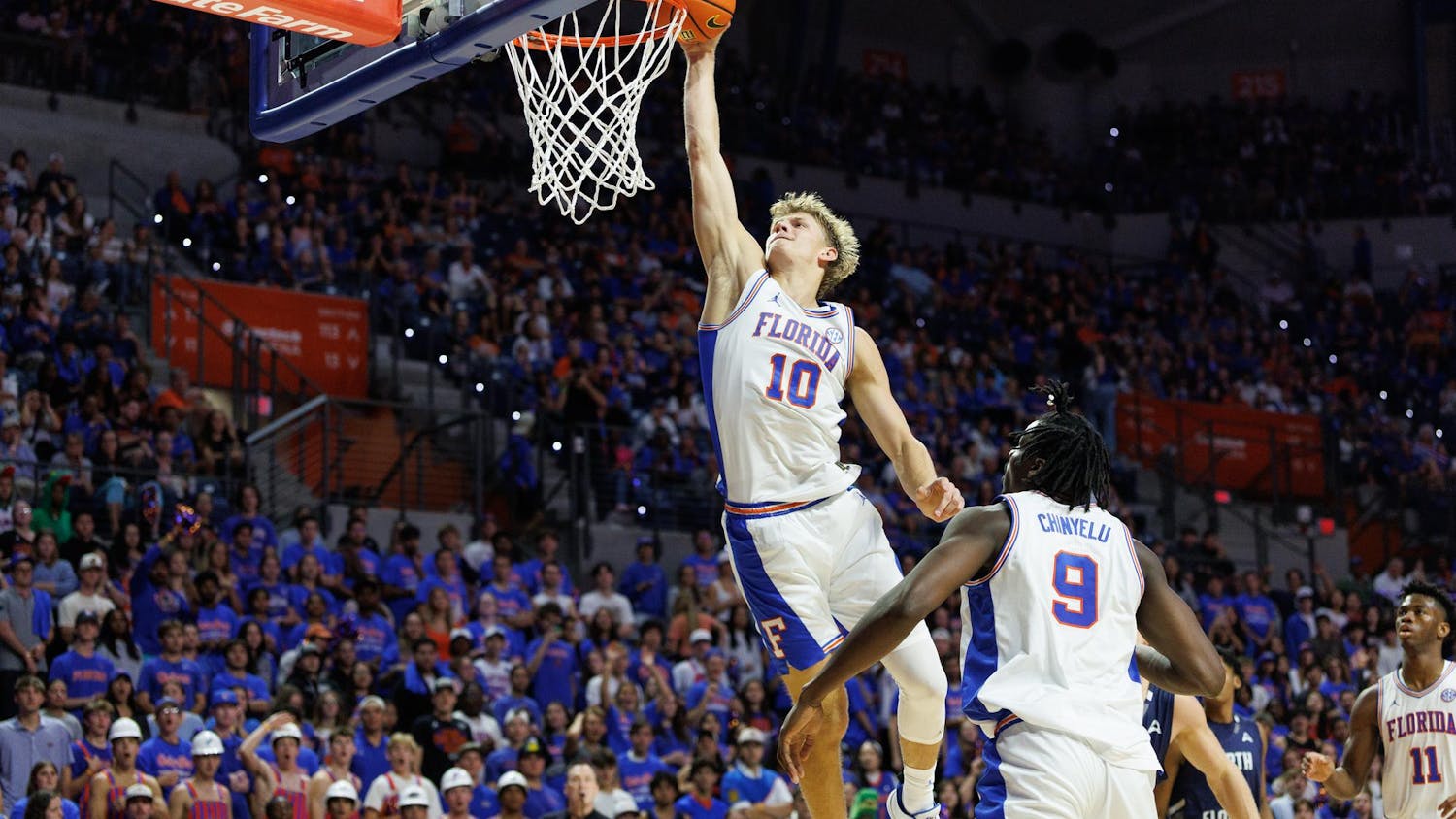When UF sophomore Ella Raney decided she would go to her first electronic dance music festival, EDC Orlando, she quickly became concerned about the risk of witnessing substance abuse or an overdose.
“I don’t take anything myself that could cause problems, but a lot of people do at festivals,” Raney said.
Although the 19-year-old plans to buy a dose of Narcan before attending the festival in November, she said she wishes the life-saving resource was provided to UF students on campus for free.
Narcan is a nasal spray medicine that rapidly reverses an opioid overdose, according to the National Institute of Drug Abuse. It can quickly restore normal breathing to a person but has no effect on someone who does not have opioids in their system.
A nationwide opioid epidemic has led to significant increases in fatalities involving synthetic opioids, like fentanyl, since 2013.
Substance use is common at EDM events, which are popular among college students. While universities across Florida have established Narcan distribution programs to provide students with free and easy access to the vital drug safety resource, UF has not implemented an on-campus program.
UF Narcan distribution
Narcan is available to students at the UF Student Health Care Center Pharmacy for pick-up, Laura Tipton, the manager of the pharmacy, said.
The SHCC is staffed by licensed pharmacists, who are authorized by Florida law to prescribe naloxone, which is the generic name for Narcan.
Two doses of Narcan nasal spray costs around $50 without insurance and the price with insurance coverage is based on the individual’s plan, Tipton said.
“I think it would be covered by most plans,” Tipton said.
Raney is aware of the option to purchase Narcan at a lower cost through insurance, but doesn’t want her parents to be misled about her own substance use.
“I would rather fork over the [money for it] over the counter,” Raney said.
Linda Cottler, UF epidemiology professor and director of HealthStreet, works with UF student organizations to increase on-campus access to cost-free Narcan.
HealthStreet is a community engagement program at UF that works primarily to serve community needs like food insecurity, HIV and the opioid epidemic through assessments and local events.
“We didn't realize that there was really no one giving out Narcan on the [UF] campus,” Cottler said.
HealthStreet visits locations such as GRACE Marketplace, Tower Road Library and the YMCA to distribute Narcan to speak with community members about their needs concerning safe substance use. However, Cottler supports the idea of including on-campus visits in its weekly rotations.
“Everyone should have [Narcan] with them because you never know when you're going to need it,” Cottler said.
Comparison with other state universities
Rose Rezaei is the Center for Health Advocacy and Wellness director and co-facilitator of the Narcan distribution program at Florida State University. The program provides participants with Narcan kits and information regarding suspected overdoses.
The initiative began with FSU students’ request for reliable access to Narcan, leading to a meeting between FSU’s University Health Services and the Department of Children and Families (DCF).
“Universities are in a position to provide students with education around fentanyl, signs of an overdose… and how to administer lifesaving naloxone,” she said. “I would love to see a state-wide coordinated effort.”
The FSU community has received 381 Narcan kits since the program started in February, Rezaei said.
Megan Giddens, assistant director of the University of Central Florida’s Substance Use Disorder Services Clinic, was initially met with pushback from administration when beginning its Narcan distribution program in June 2022.
“There were concerns if we would be enabling students if we were providing Narcan for free… so it was a team effort to make this happen,” Giddens said.
With Giddens’ persistence, the UCF administration eventually approved the clinic’s request to begin to offer Narcan at the school’s health center pharmacy, residence halls and football game tailgates.
Other Florida schools have also implemented similar Narcan distribution programs. The University of Miami established the Little Pill Big Risk, which aims to provide students with information about the dangers of fentanyl-laced drugs and harm reduction tips.
The EDM community
UF students have created their own standards for harm reduction in the EDM community.
Molly Allen, a 20-year-old UF sustainability studies and economics senior, said she has asked friends for Narcan in case she witnessed a situation while attending a festival.
One study by the International Journal of Drug Policy estimated that 33.5% of the EDM festival attendees surveyed experienced drug-related adverse effects in the past year.
Hanna Barbaree, a 20-year-old UF plant science sophomore, said their family member was given Narcan for a suspected overdose after taking Ketamine, a dissociative anesthetic that has some hallucinogenic effects.
He was in the middle of the crowd at EDC Orlando and people had to shine flashlights on him to wave down medical attendees, Barbaree said.
“If there was better access to Narcan for people at these festivals, he wouldn’t have had to wait for medical attention,” they said.
Besides drug safety measures, Barbaree recommends students bring a CamelBak that holds a hydration bag and purchase a pashmina shawl that offers dust protection for EDM festivals.
Festivals have at least three or four water fill-up stations and a pashmina can bring someone comfort if they are having any negative effects, Barbaree said.
“Everyone just wants to have fun and no one wants to take their drugs to the point of an overdose,” Barbaree said.
Contact Jinelle at jvazquez@alligator.org. Follow them on Twitter @vazquezjinelle.
Jinelle Vazquez is a senior at UF pursuing a major in Public Health with a minor in Indigenous Studies. They currently report for the enterprise desk covering health. In their free time, they enjoy hiking, photography and making art.






